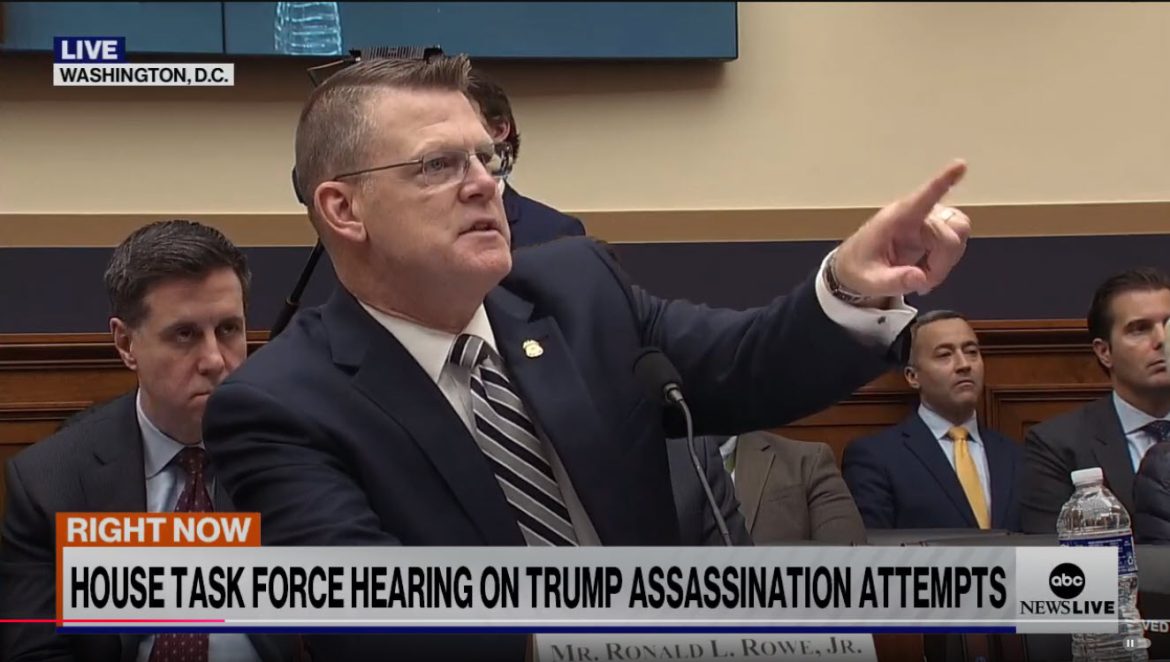A congressional hearing on Capitol Hill turns heated as lawmakers scrutinize the Secret Service’s handling of an assassination attempt on President-elect Donald Trump. The incident, which occurred during a rally in Butler, Pennsylvania, on July 13, left one audience member dead and Trump, along with two others, wounded. The event has prompted widespread criticism of the Secret Service and its operational failures.
During the hearing, Acting Secret Service Director Ronald Rowe faces intense questioning from lawmakers, including Texas Republican Congressman Pat Fallon. Fallon accuses the agency of severe lapses in judgment, presenting a photo of Trump’s September 11 visit to New York, where Secret Service agents were absent from his side. The photo, which shows Rowe positioned behind President Joe Biden at the same event, fuels allegations that the acting director prioritized optics over security. Fallon suggests that Rowe’s actions amounted to “grandstanding,” triggering a heated exchange between the two.
Rowe defends his decisions and emphasizes that disciplinary actions are ongoing for employees deemed at fault during the Butler rally. He acknowledges that the agency failed to adequately secure the rally site and describes the incident as “an abject failure.” Rowe also outlines measures being implemented to strengthen presidential protection, including deploying advanced technologies such as robotic dogs for perimeter security.
The hearing reveals broader concerns about morale within the Secret Service. California Democratic Congressman Lou Correa highlights the ripple effects of the assassination attempt, noting that morale among agents has plummeted, and top personnel are leaving the agency. He warns that these challenges could undermine the Secret Service’s long-term success and its ability to fulfill its mission.
Public interest in the hearing intensifies as details emerge about the Pennsylvania rally. Witnesses report chaotic scenes when the gunman opened fire, and questions persist about how such an incident could occur despite standard security protocols. The agency’s internal review has drawn mixed reactions, with some lawmakers expressing confidence in Rowe’s leadership and others demanding further accountability.
The controversy extends beyond the hearing room, as the public weighs in on social media. Critics point to systemic flaws within the Secret Service, while others argue that the agency is being unfairly vilified. The introduction of new security measures at Trump’s Mar-a-Lago residence, including the use of robotic dogs, symbolizes a shift toward more advanced protective strategies.
As the bipartisan task force concludes its investigation, the Secret Service remains under intense scrutiny. Lawmakers are expected to push for additional reforms, while the agency grapples with restoring its reputation and ensuring future operational excellence.



